The exercise, that I have to complete says:
That
array_removefunction must remove from the arrayarrthe value, that is in the positionpos, and scale of a position successive values ofpos, and eventually change the array size for no gaps. If this value is not included in the array (ifposis greater thanpn(array size)), then you should not do anything.
My problem is:
Probably very wrong to use the malloc function, because when it is performed, it shows the following error:
MAIN.C:
#include "array.h"
int main(void)
{
double arr[] = { 1.0,2.0,3.0,4.0,5.0 };
size_t pn = 5;/*array length*/
size_t pos = 2;/*position of the number to be deleted*/
array_remove(arr, &pn, pos);
}
ARRAY.C:
#include "array.h"
void array_remove(double *arr, size_t *pn, size_t pos)
{
int x = *pn;
int y = pos;
if (x > y)
{
for (int i = y; i < x; i++)
{
arr[i] = arr[i + 1];
}
realloc(&arr, sizeof(double) * 4);
}
}
